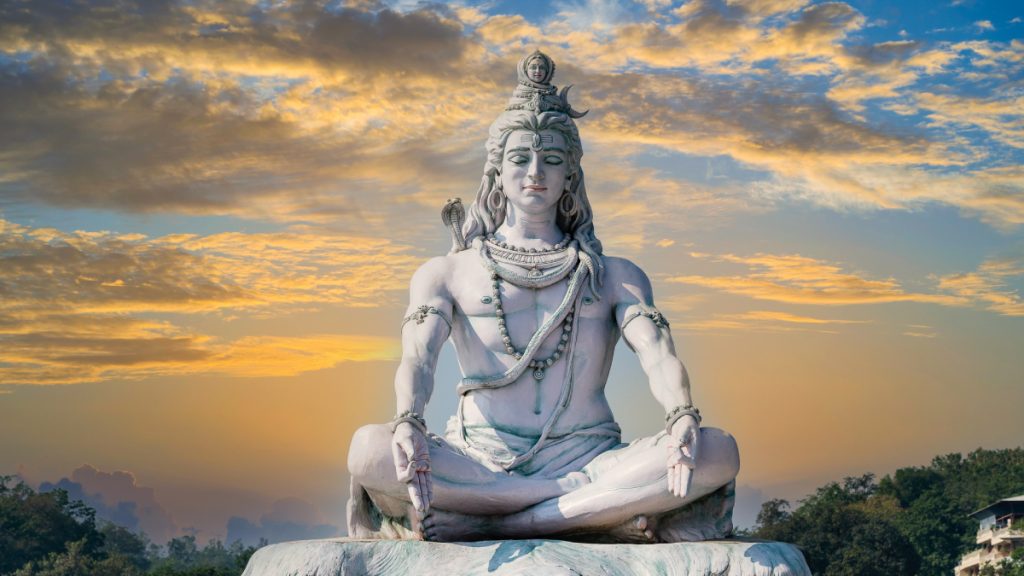Maha Shivaratri is a significant Hindu festival dedicated to Lord Shiva, celebrated with great devotion and reverence across India. It is observed every year on the 14th day of the dark fortnight in the month of Phalguna (February-March), marking the night of the union of Shiva and Parvati. Known as the “Great Night of Shiva,” Maha Shivaratri involves fasting, night-long prayers, and religious observances in temples and homes.
Maha Shivaratri Dates for 2024, 2025, and 2026
To help you prepare for Maha Shivaratri in the upcoming years, here are the dates:
| Year | Date | Day |
|---|---|---|
| 2024 | 08/03/2024 | Friday |
| 2025 | 26/02/2025 | Wednesday |
| 2026 | 15/02/2026 | Sunday |
The Significance of Maha Shivaratri
Maha Shivaratri is believed to be the night when Lord Shiva performed the cosmic dance of creation, preservation, and destruction, known as the Tandava. It is also considered the night when Shiva and Parvati were married. Devotees of Shiva fast and pray throughout the night, seeking blessings for peace, prosperity, and spiritual growth.
The festival holds special importance for those on a spiritual path, as it is said that fasting and praying on this auspicious night brings devotees closer to moksha (liberation). According to Hindu mythology, the planetary positions on Maha Shivaratri are such that they amplify spiritual energy, making it an ideal time for meditation and introspection.
How Maha Shivaratri is Celebrated
The celebration of Maha Shivaratri involves various religious practices, which vary from region to region, but some common rituals include:
- Fasting: Devotees observe a strict fast, consuming only fruits, milk, and water. Some devotees opt for a full day of fasting, while others may eat only once after performing the necessary rituals.
- Night Vigil: The night of Maha Shivaratri is spent in prayer, chanting, and meditation. Temples across the country are filled with devotees offering prayers to Lord Shiva, chanting hymns, and participating in special pujas.
- Shiva Linga Abhishekam: One of the key rituals on Maha Shivaratri is the Abhishekam, where the Shiva Linga is bathed in water, milk, honey, and other sacred substances, symbolising the purification of the mind and soul.
- Devotional Singing and Dancing: Bhajans and kirtans in praise of Lord Shiva are sung throughout the night, with some communities also engaging in traditional dances dedicated to Shiva.
Maha Shivaratri in Temples Across India
Maha Shivaratri is celebrated with fervour in Shiva temples across India. The most famous celebrations take place at prominent temples such as the Kashi Vishwanath Temple in Varanasi, Mahakaleshwar Temple in Ujjain, and Kedarnath in the Himalayas. Large crowds of devotees visit these temples to offer their prayers and seek blessings from the deity.
In southern India, Maha Shivaratri is observed with great devotion at temples such as the Annamalaiyar Temple in Tamil Nadu, where a grand festival is held on the occasion, attracting thousands of devotees.
Maha Shivaratri in Homes and Communities
Many families observe Maha Shivaratri by performing rituals at home, which include decorating the house with flowers, offering prayers to the Shiva Linga, and reading scriptures like the Shiva Purana. The fast is broken only after the night vigil is complete, symbolising spiritual purification and the triumph of good over evil.
Maha Shivaratri – A Night of Spiritual Awakening
Maha Shivaratri is not only a religious festival but also a time for deep spiritual reflection. Devotees believe that fasting and praying on this night can help overcome ignorance and darkness in their lives. The energy of Maha Shivaratri is considered ideal for spiritual growth, meditation, and attaining a higher state of consciousness.
Popular FAQs about Maha Shivaratri
- Is Maha Shivaratri a public holiday in India? Yes, Maha Shivaratri is a gazetted public holiday in many states across India. However, it may vary by region depending on local customs and practices.
- What is the significance of Maha Shivaratri in Hinduism? Maha Shivaratri is considered one of the most important nights in Hinduism. It marks the union of Shiva and Parvati and celebrates Lord Shiva’s cosmic dance, Tandava. It is a time for spiritual awakening and self-reflection.
- How do devotees celebrate Maha Shivaratri? Devotees celebrate Maha Shivaratri by fasting, praying through the night, performing the Abhishekam ritual to the Shiva Linga, and participating in bhajans and kirtans in honour of Lord Shiva.
- Why is fasting important on Maha Shivaratri? Fasting on Maha Shivaratri is believed to purify the mind and body, helping devotees to focus on spiritual practices and deepen their connection with Lord Shiva.

